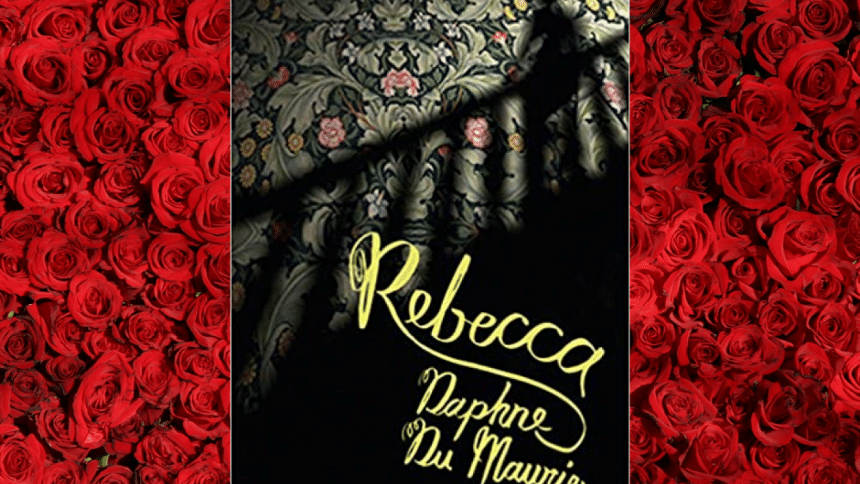Last Night We Went to Manderley Again

In the past eight months of the Covid-inspired lockdown, Netflix has smartly released a horde of classic stories that demanded a revisit—some were perfect for offering comfort, others resonated deeply with the multiple realities being suffered by each household and individual. An adaptation of Daphne du Maurier's Rebecca seemed especially well-timed, with its theme of imprisonment at home, as well as the timeless pull of social expectations on one's identity.
In her 1948 novel, du Maurier studies Manderley through the conventions of the Gothic genre, in which a young, naïve, usually female protagonist comes to an old and mysterious place to build a new life. The narrator is of course imprisoned by the gender roles of her time, but in addition, du Maurier both honours and subverts these tropes by offering a literal prison in the beautiful Manderley, thus painting a unique picture of psychological and physical entrapment.
Manderley represents both freedom and imprisonment for its inhabitants. At the beginning of Rebecca, the narrator has no home to speak of. Almost all of her family is deceased and she has inherited no property. As a result, she's forced to take on dull and humiliating jobs such as working for the obnoxious Mrs Van Hopper. Suddenly her fortunes improve—and decline—when she marries the wealthy Maxim de Winter. As Maxim's new wife, she finally has a place of her own. The tradeoff of this arrangement, however, is that as she accepts Manderley as her own property, she is weighed down by people's expectations from her personality. Surveyed by Maxim, and by servants, she feels a constant pressure to become something she's not—a poised, elegant lady.
On the other hand, Maxim is comfortable at Manderley, having lived there since childhood. Ownership of the estate gives him the freedom to build relationships with his wealthy and powerful neighbours and allows him to earn an income consistently. However, if embracing Manderley is an obligation by marriage for the narrator, for Maxim it is home, with all the complications that it entails. It is beautiful, and it is his duty to preserve it as such. It is comfort and pride, a haven that he cannot wait to show off to his new and wide-eyed bride. But it is also where the ghosts of his previous marriage still roam, embedded in everything from the décor to the staff to the way that everything is done. Despite possessing the freedoms of wealth, lineage, age, and gender, Maxim is just as much of a prisoner at Manderley as his new wife. When the local detective orders that Maxim be put under house arrest towards the end of the novel, we sense that these measures are redundant—Maxim doesn't have anywhere to run off to.
This complicated relationship with home is one that we have all been forced to encounter throughout this year. Guarding and overstepping personal boundaries and discovering the quirks in our families' personalities (which normally their colleagues or classmates have to endure during the day), all while nursing gratitude that we even have a comfortable place to call home. In some ways, none of us are all that different from the inhabitants of Manderley. These grey areas are what so many of us who grew up loving Rebecca wanted to see visualised in this adaptation, and this is what the film failed to offer.
Most viewers are complaining that the adaptation is too beautiful, too much of a love story, and this is both correct and not.
Rebecca is indeed a love story. But as the film fails to demonstrate, it is foremost a romance between Manderley and its inhabitants. Beautiful, haunted Manderley, for which du Maurier devotes page upon page of gorgeous nostalgic prose before one can even meet the characters in her book: "grey stone shining in the moonlight of […] dreams, the mullioned windows reflecting the green lawns and the terrace. Time could not wreck the perfect symmetry of those walls, nor the site itself, a jewel in the hollow of a hand." Du Maurier ensured that the space was more than just beautiful, however. It had a character of its own, which both lent to and absorbed from the minutiae of life lived in it: the balls, the menus, "the little heap of library books marked ready to return […]. Ashtrays, with the stub of a cigarette; cushions, with the imprint of our heads upon them […]; the charred embers of our log fire still smouldering against the morning." When the estate burns to the ground and the reader is snapped back to the Winters' dreary reality, one feels the bittersweet loss. One truly commiserates what a life they have had to leave behind, while realising that returning to it wouldn't altogether be advisable.
The film swaps out these edges and thorns for a flat love story of absolutes: Manderley – bad, life after Manderley – good. And when the estate collapses in embers, the audience feels nothing. A similar siphoning away of nuances awaits du Maurier's complicated characters.
"I heard myself saying boldly, brazenly, "Rebecca must have been a wonderful person. I could not believe that I had said the name at last. I waited, wondering what would happen."
Du Maurier is nothing if not a magician of unreliable narrators, and there are more than one in Rebecca. All of Rebecca is presented to us through the uncertain, overwhelmed eyes of an unnamed protagonist who tells us so much about herself by obsessing over the ghost of her husband's former wife. Throughout the novel, this narrator struggles to assert her identity in the claustrophobic environment of Manderley, which is dominated by the memory of Rebecca.
Yet, by the end of the novel, as she finds out more about Rebecca and Maxim's marriage, she rids herself of her doubts in a moment of personal growth, accepting that she does not need to live in Rebecca's shadow. The novel is a subverted character study in that in learning more about Rebecca's life, we explore the narrator's coming of age.
All of this while Rebecca herself is painted through the voices of others. The furnishings, staff, and social milieu of Manderley tell us about a beautiful, charming, confident, sophisticated personality. To these, the narrator adds her own embellishments, wrought by her personal sense of insecurity, so that Rebecca becomes a myth more than a woman.
From her husband, meanwhile—and this is a spoiler if you haven't finished the story—we hear: "I remembered her eyes as she looked at me before she died. I remembered that slow treacherous smile. She knew this would happen even then. She knew she would win in the end." As a man, Maxim's version of Rebecca is a tad too defensive and scornful. It is for a discerning reader that du Maurier writes her heroines, who must learn to question the unreliability of the self-entitled male perspective, something she explores to delicious results in her other novel My Cousin Rachel.
At the end of conventional Gothic novels, the protagonist becomes the owner of the big house where she used to be a stranger. The implication is that an estate, even if it's a prison, is the source of too much power to give up. At the end of Rebecca, however, du Maurier one again subverts a Gothic trope: in the final sentence of the book, we learn that Manderley is burning to the ground, its horizon "shot with crimson, like a splash of blood. And the ashes blew towards [them] with the salt wind from the sea." The world of the novel shut down abruptly with the fall of Manderley, there's nothing else one wants to read about the story anymore, and this—unlike the clichéd risqué final scene of the film—is what pulls readers to du Maurier's novel still, a century after its time.
Sarah Anjum Bari is editor of Daily Star Books. Reach her at [email protected] or @wordsinteal on Instagram.
Shababa Iqbal is trainee sub-editor at Arts & Entertainment and Star Youth, The Daily Star.
For more book-related content, follow fb.com/DailyStarBooks and @thedailystarbooks on Instagram.


 For all latest news, follow The Daily Star's Google News channel.
For all latest news, follow The Daily Star's Google News channel. 



Comments